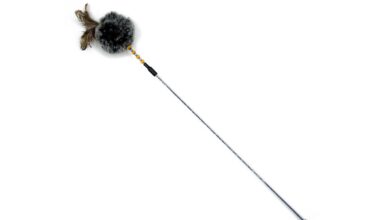The Role of Dog Show Clubs in Promoting Breeds
Dog show clubs play an essential role in promoting various dog breeds by creating structured events where handlers can showcase their dogs. This environment allows breeders to display their carefully developed lines to potential buyers, enthusiasts, and the public. Breeders who are members of these clubs commit to high standards of breeding practices, ensuring that as a result, healthy and well-tempered dogs are exhibited. Moreover, these clubs serve as a vital connection between breed enthusiasts, fostering community and education around specific breeds. Events organized by dog show clubs often act as a gateway for newcomers into the world of purebred dogs, guiding them through the nuances of breed standards and responsible ownership. Many clubs provide workshops, seminars, and mentorship programs for new breeders eager to learn about keeping purebreds. Additionally, they often collaborate with veterinarians and trainers to promote responsible breeding practices and health checks. Judging at these shows is carefully scrutinized, ensuring that breeds remain true to their standards. Enthusiasts often form lifelong friendships that grow from shared experiences at these events, leading to continuous learning and appreciation of dog breeds.
Dog show clubs also facilitate various competitions that spotlight individual breeds. These competitions are not only fun for participants but also serve as an avenue to promote the appreciation of each breed’s unique characteristics. Participants range from the professional handler to novices, each gaining invaluable experience and showcasing their canine companions. By conducting well-organized events, clubs help build a structure that allows dog owners to understand breed standards in a manner that is engaging. In general, many dog owners find the experience of participating in dog shows exhilarating and rewarding. Clubs frequently sponsor awards, rosettes, and trophies, which can motivate owners and handlers to present their dogs in the best possible light. Winning a title can significantly enhance a dog’s reputation, which is crucial for breeders’ business. These titles not only highlight the quality of a dog but also reflect the efforts of the owners and handlers managing the dogs’ training and care. Furthermore, clubs often offer educational materials to assist new participants, making the entry into dog showing less daunting. Overall, competitions serve as an avenue for ongoing education and appreciation for dog breeds.
Building a Strong Community Through Clubs
Beyond competitions, dog show clubs play a crucial role in building a strong community of dog owners. By hosting regular social events, training sessions, and breed-specific meetups, these clubs become a nexus for dog lovers. These gatherings foster an atmosphere of collaboration and support among dog owners, connecting them with experienced breeders, trainers, and fellow enthusiasts. One friendly community encourages the exchange of knowledge, sharing tips on grooming, training, nutrition, and health care specific to certain breeds. This dialogue is vital in nurturing a culture of responsible pet ownership and can help prevent issues such as overbreeding and neglect. Enthusiasts often find lifelong friends through clubs, creating bonds as strong as family ties, all united by their love of dogs. Notably, clubs also often facilitate charitable outreach and events that support local shelters, rescue groups, or breed-specific organizations. This charitable inclination demonstrates their commitment not just to showing dogs but also to uplifting dog welfare overall. Engagement in community events helps raise awareness about breed-specific health issues while promoting the importance of adopting a pet. Ultimately, clubs are vital for creating a supportive environment centered around dog ownership.
Moreover, dog show clubs contribute towards maintaining breed integrity by advancing educational initiatives for both current and prospective owners. They often host seminars that educate participants about the history, traits, and standards of different breeds. Knowledge regarding genetics, health concerns, and specific breed characteristics contributes to informed breeding decisions. Clubs may invite esteemed judges, breeders, and experts to share their insights, providing attendees with valuable perspectives. Such events can inspire potential breeders to adhere to responsible practices while fostering respect for the breed’s lineage. The educational efforts extend beyond just breeders; many clubs invite families interested in dog shows to join classes designed for learning more about breeds before committing to ownership. The more knowledgeable a prospective owner is about their chosen breed, the more likely they are to provide appropriate care and socialization. These initiatives also promote interest in different breeds, diminishing misconceptions that may exist within the general public. As dog shows and clubs continue educating, they ensure that the legacy and standards of breeds are upheld for generations to come. Continuing education proves crucial in the evolving landscape of dog breeding and ownership.
The Impact of Club Regulations
The regulations that dog show clubs establish are crucial in guiding responsible breeding and ownership practices. These rules often include thorough requirements related to health screenings, which can significantly reduce the prevalence of inheritable diseases within breeds. Through these regulations, clubs encourage their members to prioritize the health of their dogs over mere aesthetic traits. By implementing guidelines around dog health records, genetic testing, and breeding practices, clubs leverage their influence to create a culture of responsibility and commitment towards maintaining breed integrity. For instance, members may be required to submit health clearances for dogs prior to participating in shows, promoting transparency about a breeding dog’s health history. These regulations are designed not just for competitions but also serve as best practices in the broader breeding community. Compliance with these guidelines can ultimately enhance trust among pet owners and the breeders alike, reinforcing the importance of ethical breeding. Additionally, clubs provide a structured framework for reporting issues related to irresponsible breeding, helping to highlight and suspend breeders who violate standards. As a result, regulations help maintain the quality of breeds while protecting their long-term health and welfare.
Moreover, clubs often facilitate collaboration with reputable veterinarians and animal behaviorists to enhance the overall breeding practices within specific breeds. When clubs partner with veterinarians, they develop protocols for regular health check-ups and genetic health issues screenings. This partnership encourages breeders to seek proper health care and preventive measures for their dogs. Education on handling and training is usually another core aspect offered by these partnerships, allowing breeders access to the latest research and recommendations. Collaborations with animal behaviorists can address common behavioral concerns in breeds, guiding owners effectively through training challenges. These insights play a pivotal role in ensuring that the dogs present at shows are not just visually appealing but also exhibit sound temperament and behavior. Additionally, networking opportunities presented through veterinary collaborations often lead to community-driven initiatives aimed at improving breeds’ quality of life. Such initiatives may include health fairs, vaccination drives, or awareness workshops regarding behaviors. This synergy between clubs and professionals is integral for ensuring the comprehensive well-being of dogs showcased and bred within the club.
Conclusion: Strengthening the Dog Show Community
In conclusion, dog show clubs are essential in fostering and promoting various breeds. Through the organization of events, competitions, and education, they provide platforms for showcasing the beauty of specified breeds while maintaining high standards of health and ethics. Community building plays a significant role, as they unite dog lovers, breeders, and trainers, creating shared spaces where lifelong connections are formed. This sense of belonging is crucial in nurturing responsible ownership and breeding practices, which are foundational to breed preservation. The regulations established by dog show clubs ensure adherence to ethical practices, ultimately safeguarding the integrity of breeds. Furthermore, by collaborating with veterinarians and behaviorists, these clubs remain committed to ongoing education, encouraging breeders to prioritize health and temperament. The relationships among club members, fostered through shared interests, enhance the experience of participating in dog shows and breed appreciation. The commitment of dog show clubs to uphold the standards and welfare of breeds continuously impacts the overall canine community, paving the way for a brighter future. With each show, the love for dogs and responsibility towards their care are exemplified, nurturing future generations of dog enthusiasts.


